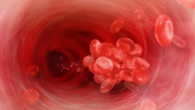
At what pulse should an ambulance be called: the cardiologist tells
0
The cardiologist noted that you should not try to reduce a high heart rate on your own.
Heart health is independent of age, and problems can appear even without risk factors. There are several indicators that you should pay attention to and consult a doctor. These are blood pressure, body mass index, lipid spectrum, glucose and glycated hemoglobin, as well as heart rate (HR).
HR should be calculated in a state of rest at a comfortable room temperature, the normal pulse is from 60 to 100 beats per minute. Cardiologist Yuriy Konev states that if the pulse cannot be determined or exceeds 150 beats per minute, an ambulance should be called. you should consult a doctor. And if in young people an increased heart rate can be related to the regulation of the nervous system, then in elderly people it will indicate a malfunction of the heart.
“If it is above 90, you do not need to treat the heart yourself. If at rest the pulse does not calm down within half an hour to an hour, this is an indicator that you still have tachycardia. And only a doctor can assess the cause of tachycardia. And you definitely need to call an ambulance when the heart rate is not determined at all or is above 150 beats per minute,” says Konev.









Leave a Reply